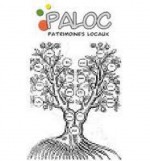A dozen researchers from the Knowledge and Development UMR (Joint Research Unit) and the PaLoc (Local Heritage) UMR of the IRD (Institute of Research for Development) is developing an STS approach in their research and contributing to the activities of IFRIS.
The “Science, Technology and Society” team, which is affliated to the “Development and Society” UMR, works on the production of science and technology in developing countries. The uniqueness of this team lies in its research on the social embeddedness of science, science policies, the constitution of scientific communities, and the emergence of disciplines and technological learning combining the use of qualitative tools (bibliometry, surveys and science indicators) with qualitative analyses, from a sociological and historical perspective. Important issues are addressed, such as the analysis of the practices of scientific research, the links between politics and the social functioning of research, and innovation policies. All of these issues go back to the issues of governance, in so far as the multiplicity of the social actors and the social and historical embeddedness of science are a constant preoccupation.
The work on the “Local systems of management of biodiversity and localized production” of the Patrimoines Locaux (PaLoc) UMR is carried out under the wing of IFRIS. As part of a long-term analysis of the relations between society and nature, the researchers examine local strategies in in relation to global challenges of biodiversity conservation, from a comparative and interdisciplinary perspective.
Within the favorable context of international debate on sustainable development, biodiversity conservation and global warming, the central position of local communities has been reaffirmed, and the essential role that local know-how has to play has been highlighted. The association of such knowledge with the conservatory management of biodiversity has led to the design and implementation of valuation tools which can be used in three domains: the conservation of biological diversity, the conservation or elaboration of a cultural heritage, and the extraction of economic value. Many important questions emerge from these new articulations between local knowledge, forms of management of biological diversity, and valuation tools. One must first understand the relations between systems of biodiversity management and cultural diversity: what are their foundations and what are their specific characteristics? However, it is also important to investigate the rupture or continuity which the appearance of these new tools, which are often somewhat normative, represents in the production of knowledge and the systems of biodiversity management resulting from them.
- UMR Population and development (IRD & Paris Descartes): http://www.ceped.org
Contact : Mina Kleiche – mina.kleiche@ird.fr
Liste des members : Arvanitis Rigas, Gaillard Jacques, Kleiche-Dray Mina, Quet Mathieu, Waast Roland, Al Dahdah Marine.
- UMR Patrimoines locaux IRD/Muséum national d’histoire naturelle: http://www.paloc.ird.fr/
Contact: Frédéric Thomas – frederic.thomas@ird.fr
Liste des membres : Benabou Sarah, Thomas Frédéric, Boisvert Valerie, Alom Montserrat
